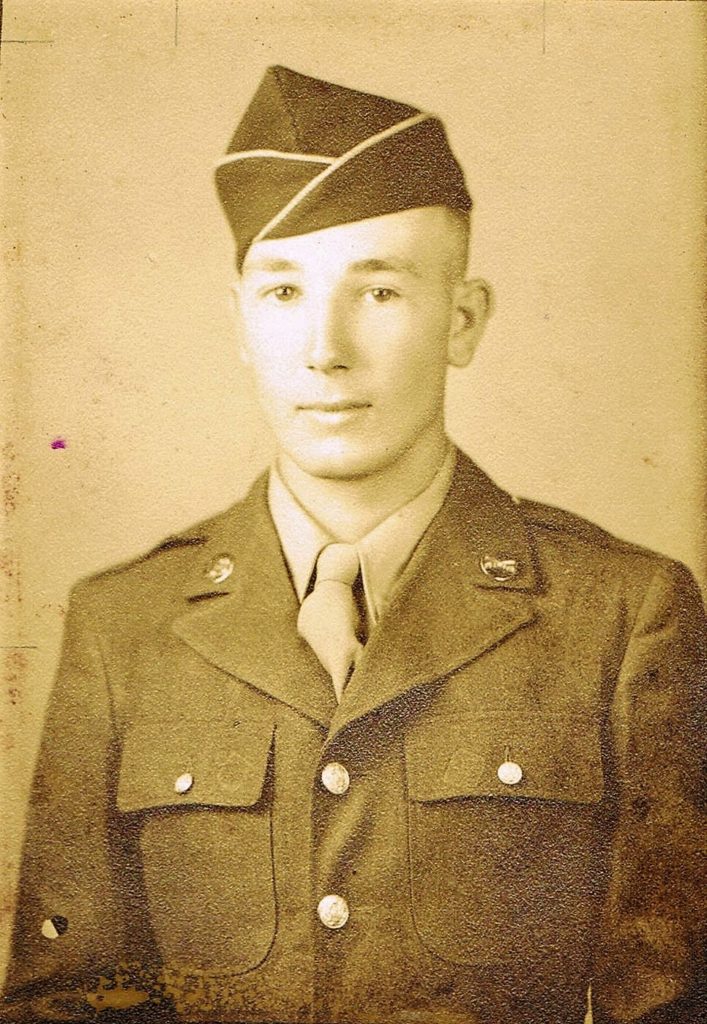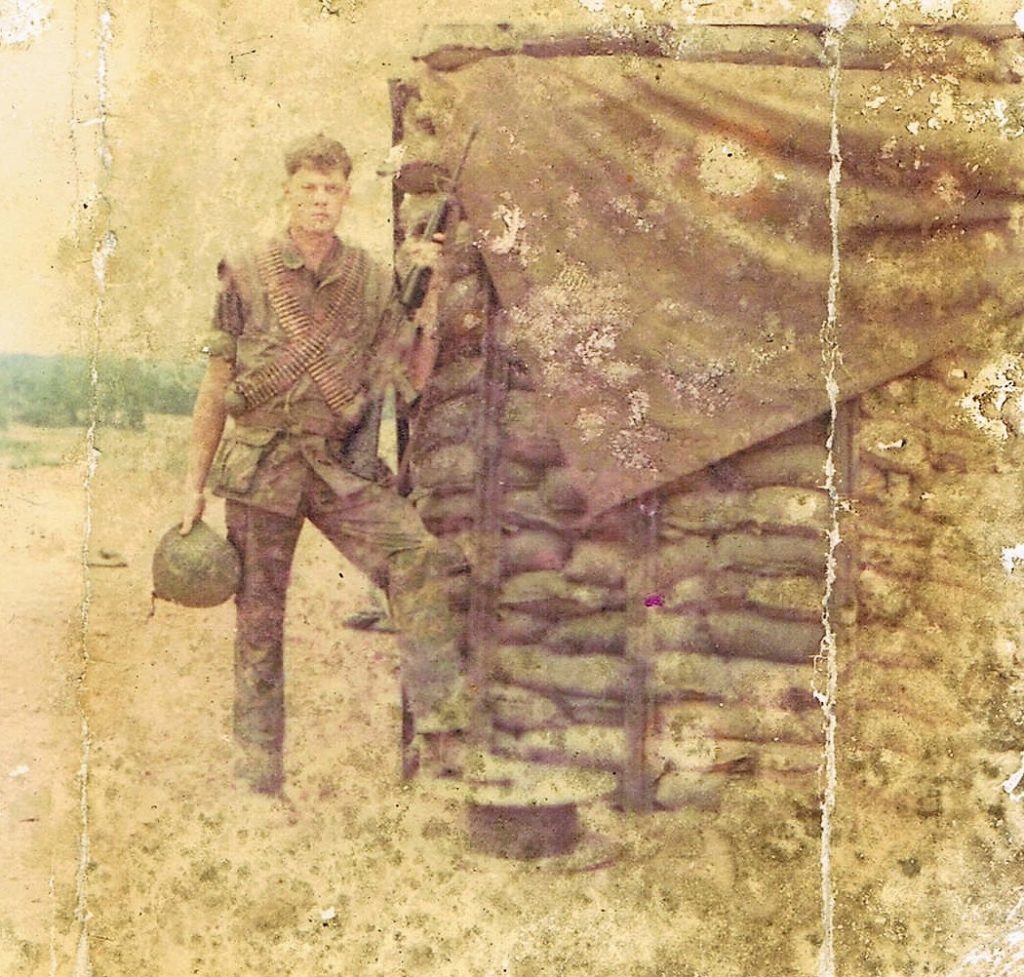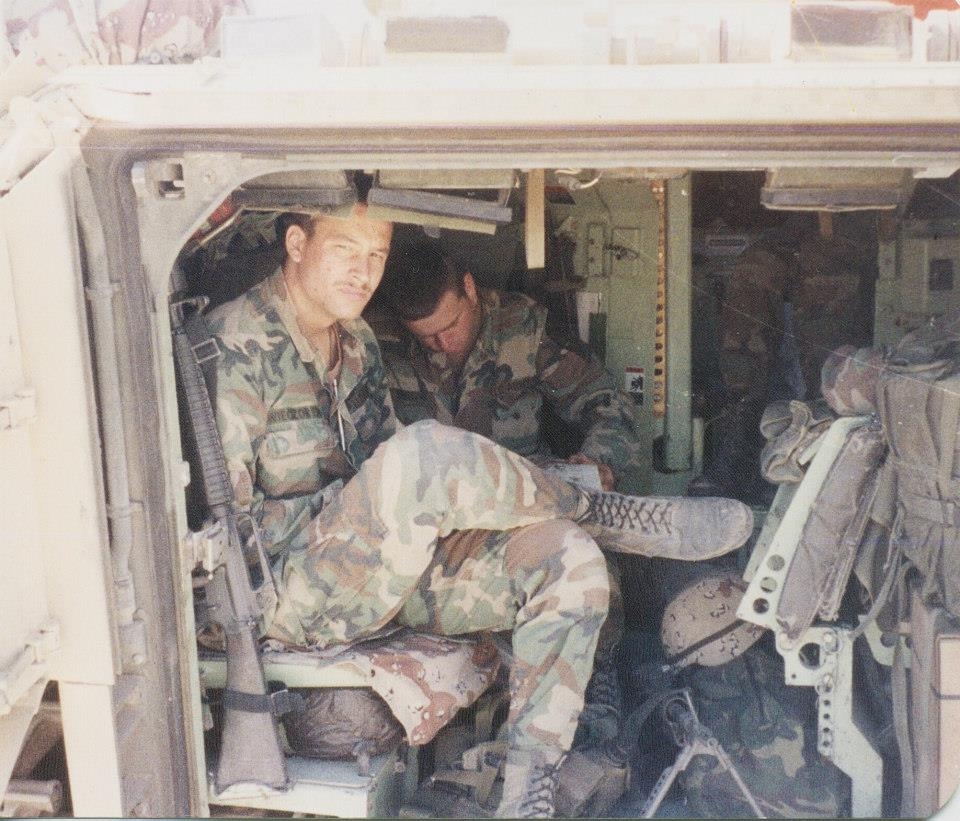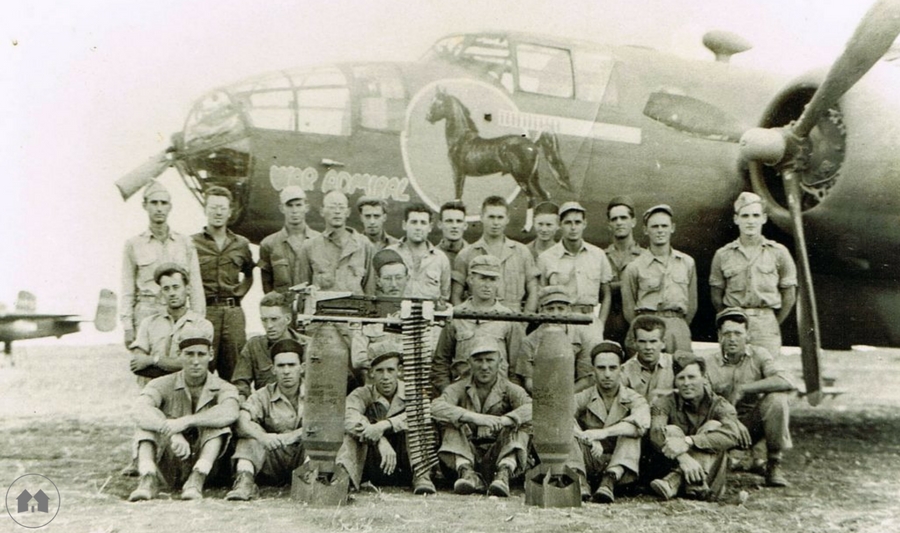Veteran’s Day is another of those holidays that seems to go by with little thought to its meaning. Perhaps you see a parade filled with men of various ages in uniform, and you smile to see such a patriotic sight. There are more flags flying on that day than most others, and often there are Veteran’s Day sales where you can get sheets or towels at a discount. But what should you feel on Veteran’s Day?
What should you feel this Veteran's Day? Gratitude ... thankfulness that there are brave men and women who stand in the gap, who attempt to put themselves between us and the dangers of this world. Click To TweetDo you know any veterans? I know a large number. One of them is my grandpa, R.V. Beeman. He was 19 when he went into the service in World War II. He signed up for the Army, in the Cavalry—perfectly fitting for a native Texan. However, there were no horses to be had where grandpa went. His troop landed in the Philippines, fighting a bitter battle against Japanese soldiers already dug into the hills and caves, who rained down death on the American soldiers trying to take the island. Grandpa says it rained every day; men would get the rot from being damp, especially on their feet. Each soldier had two pairs of socks: one he wore, while the second pair hung over his shoulders in hopes that they would dry during the day. Every night, the men switched their wet socks for (hopefully) dry ones because no one wanted to lose his toes. Eventually, Grandpa ended up in Japan, and was supposed to ride as one of the Cavalry honor guards for General MacArthur, but instead he was in an Army hospital battling malaria. Even after he came home he suffered debilitating bouts of the yellow fever.
Even when soldiers come home, they are never the same.

I have a dear friend from church named Louis Romine who fought in the same war as my grandpa, but on the other side of the world. Mr. Louis landed in France and fought his way across Europe all the way to Germany. He once told me that his wife wanted to take a European tour when they were middle-aged. She kept asking if he recognized the places that they went. He said that nothing looked the same except the Eiffel Tower—everything else was rubble and destruction during the war. Mr. Louis once told me that he could not bear to hear fireworks or any kind of gunfire. The echoes of a long-distant war cause him to shake and cry uncontrollably, even to this day. Mr. Louis is now 99 years old. The men of WWII came home to a victor’s welcome, but were never encouraged to speak up about what they had seen or endured. There was no recognition of Post-Traumatic Stress Disorder, and no real psychiatric support for these stoic men.
Some soldiers carry emotional scars that can last a century.

My father was a Marine in Vietnam. Some soldiers feel called to go into service; others were drafted, compelled to serve in conflicts they did not agree with. My father tells me he saw men go insane with their treatment and circumstances. He has always carried tremendous guilt, believing the U.S. abandoned the South Vietnamese to a terrible fate. Many of his fellow soldiers came home on planes, and upon landing went directly to the bathrooms, changed into civilian clothing, and stuffed their uniforms into trash cans. They did this so they could leave the building without being jeered at or spit upon by people who reviled them, with no thought of what the young men had gone through.
Not all soldiers receive a hero’s welcome.

In high school, I was friends with a young man named David Wieczorek. He was smart, funny, and kind. David went into the service as soon as he graduated. Desert Storm seemed to develop overnight, then just as quickly it seem we had “won” and our boys would all come back heroes. While America was celebrating victory, my friend was about to be deployed home. On his last day he stepped on a cluster bomb. David lost both legs in the blast, and died from blood loss before the helicopter could get him to help. I still have the letters he wrote, telling me all the things he was going to do when he came back to Arkansas.
Not all soldiers come home.
What can you do for a veteran, today and every day, to show them how much you appreciate their service and sacrifices for our country?
- Support them. You can monetarily support veterans through many different organizations. My grandpa R. V. has supported the Paralyzed Veterans of America for as long as I can remember.
- Lift them up. You don’t have to know a veteran personally to pray for them. So many have lingering physical pain or emotional wounds, including guilt and regret. Have your church sign cards to send to a VHA hospital or home, saying you are praying for them.
- Show them respect. Stand up for the National Anthem; salute the flag. These are symbols of the very things they fought for and many died for. When you see military personnel, young or old, thank them for their service.
What should you feel this Veteran’s Day? Gratitude … thankfulness that there are brave men and women who stand in the gap, who attempt to put themselves between us and the dangers of this world.
“Greater love hath no man than this, that a man lay down his life for his friends.” John 15:13

Thank you, Sam, for making Veteran’s Day sobering, real, and personal for us. You’ve spurred me on to make some time today for pondering, prayer, and gratitude.